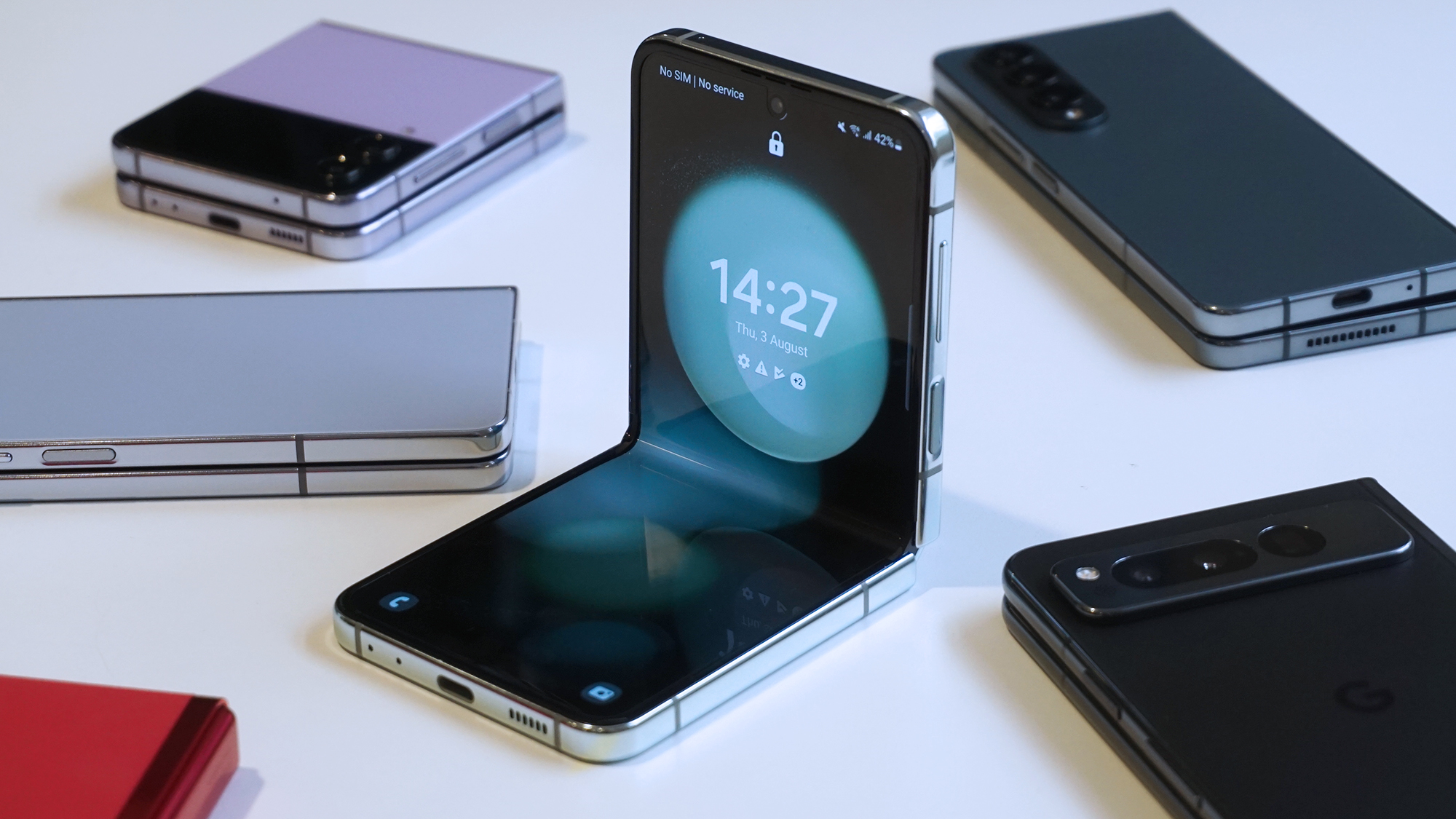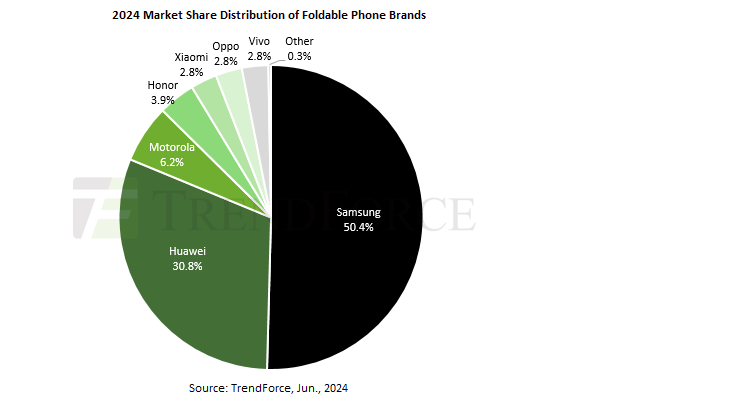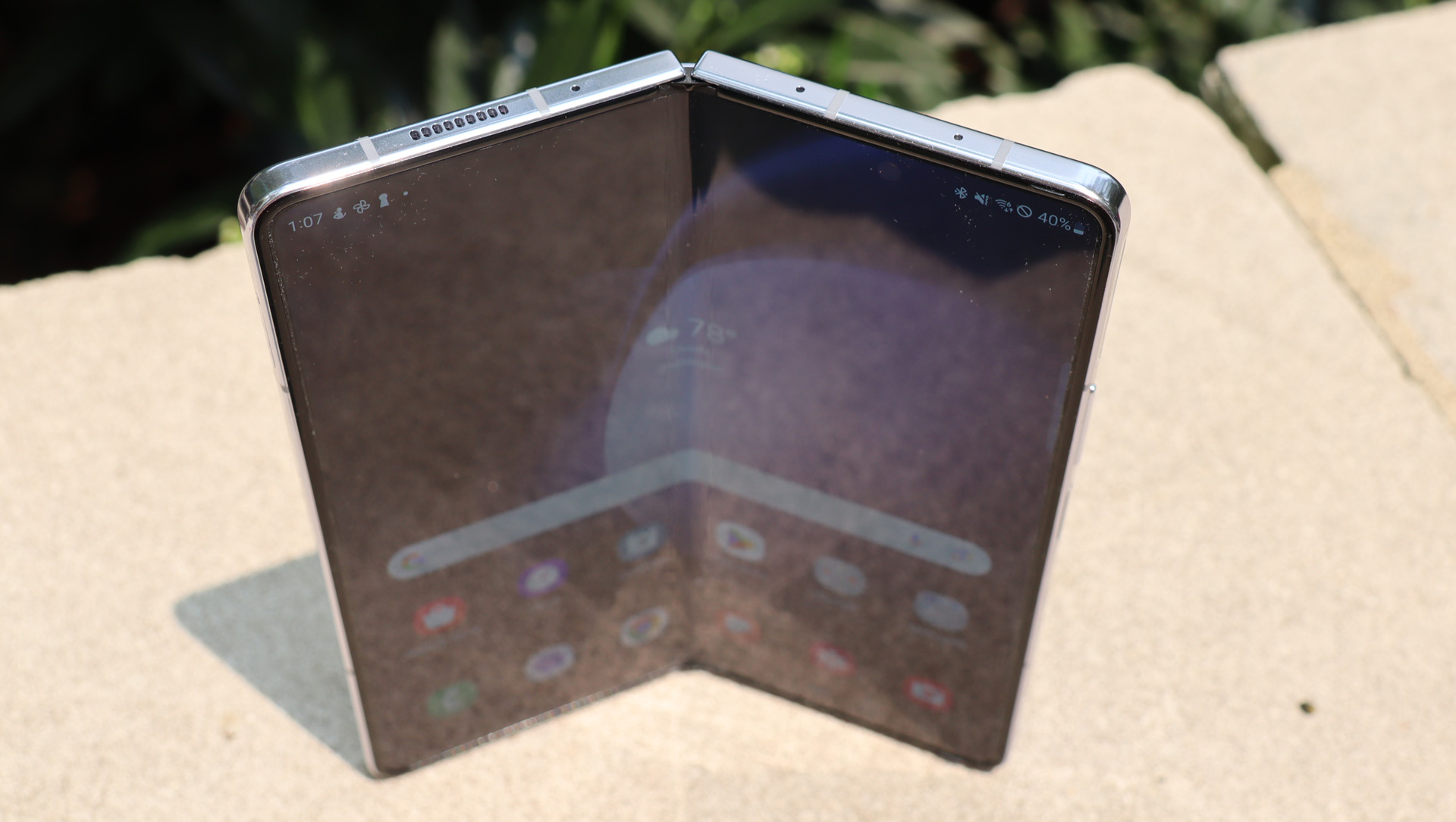The foldable phone market is still tiny – Galaxy Unpacked is Samsung's big opportunity to expand it by doing these three things
Let's unpack this

As I gear up for what should be another exciting Samsung Galaxy Unpacked, with the July 10 event set to feature new foldable phones, smart watches, and a smart ring, I'm reminded of the still harsh truth about the folding phone market: it accounts for just 1.5% of global smartphone sales.
If you consider that the global phone market is worth $509 billion, then 1.5% of that market, or $7.9 billion, is not a terrible number. But if we account for mindshare, foldables are still a blip in the public consciousness.
Market research company Trendforce has some useful numbers about what it considers the "gradual rise" of the foldable market that could reach... wait for it... 5% by 2028.
While the market for the best foldable phones is small, it's getting crowded, with phone manufacturers acting like there's a foldable land rush. After Samsung established the market with its Samsung Galazy Z Flip and Samsung Galazy Z Fold (which took a few iterations to become usable), competitors like Google, Huawei, Oppo, ZTE, and Honor rushed in with their own similar but often slightly thinner, prettier, or more powerful models.
To Samsung's credit, it's been upgrading its foldables effectively for a few years now, and is expected to break new ground in Paris with the Samsung Galaxy Z Flip 6 and Samsung Galaxy Z Fold 6.
Unfolding the truth
In the global marketplace, that strategy may not matter much as competitors have chipped away at Samsung's foldable dominance, pushing it this year to just above 50%. The other biggest foldable market player is now Huawei.
What's interesting about the TrendForce pie chart below is not just that Samsung and Huawei essentially own the foldable market (with Motorola bringing up the rear with 6.7%), but that Huawei, a Chinese company that does not sell its devices in the US, is such a big player.
Get daily insight, inspiration and deals in your inbox
Sign up for breaking news, reviews, opinion, top tech deals, and more.
Extrapolating a little bit, this may support my theory that the foldable marketplace is not truly global, and is instead centered in China, South Korea, and maybe India.
In the US I almost never see a foldable in the wild. There's the occasional random Galaxy Z Fold, but I have yet to see someone carrying a Galaxy Z Flip. Okay, I have seen someone – it was Euphoria actress Syndey Sweeney, who showed up last year in South Korea for Samsung at the Galaxy Z Flip 5 and Z Fold 5 launch event. She appears to have carried that Flip 5 back to the US, and has been photographed using it at various TV appearances. She's also paid to use it, so there's that.

The lack of average consumer interest in foldables (see my anecdotal X poll below) is somewhat confounding, since many of us grew up with or remember our first handsets as flips. These were not 'foldable' phones per se, in that the screens did not fold, but they did flip open and closed, and were largely lovable, if limited in functionality.
Modern foldables combine the best of old-school flips and modern big-screen smartphone wonders. They can do everything, and look excellent while doing it.
The holdup may be price. The Galaxy Z Fold starts at $1,799.99 / £1,749 / AU$2,599 (though trade-in deals and other perks can cut the price way down). The Z Flip 5 starts at $999.99 / £1,049 / AU$1,649. Motorola's fast rise in the market is mostly due to it significantly undercutting Samsung on price, at least in comparison to the Flip. The Motorola Razr is typically listed for under $500, although the just-announced 2024 Motorola Razr model starts at $699.99 / £799 / AU$999, while the Plus model will run you $999.99 / £999 / AU$1,699.
Some believe Apple's absence from the foldable phone space is holding the market back. Apple's presence in any space usually validates that market, but most believe Apple is still years away from introducing a folding iPhone – and considering the slow growth of the space, it might wait even longer.
What type of smartphone do you own?June 27, 2024
How can Samsung move the dial?
So what can Samsung do with its next foldables to change consumer perceptions, and begin to bring the form factor into the mainstream?
1. Lose the crease
It's likely that, while some consider foldables intriguing, they're still turned off by the visible crease that appears on virtually every folding display. I've seen it to varying degrees on Galaxy Flips and Folds, the Google Pixel Fold, and Motorola Razrs. It's almost inescapable. Perhaps consumers don't like the look and feel of that.
So the first thing Samsung can do at Unpacked is wow us with the first crease-free Galaxy Z Flip and Fold. For many people, seeing would be believing
2. Reassure us on durability
There's also the issue of durability. Anything mechanical is more prone to failure than a device that's purely solid state. The best iPhones and best Samsung Galaxy phones last so long because there are no moving parts. They can break when dropped, but dust and water won't bother them.
Something with a hinge, however, might have more trouble. Granted, Samsung builds its foldables to be as durable as its regular phones – this year, they have to convince consumers that this is the case, and that they're not taking an expensive risk by investing in a foldable.

3. Get the price right
With the prospect of yet another set of Samsung Galaxy Flips and Folds to consider, I have to wonder what else Samsung can or will do this time to expand the market. Sure, it's partially focused on holding onto its market dominance, but Samsung, like every other foldable maker, also knows that 1.5% may not be enough to justify the long-term effort.
For me, it all comes back to pricing. I would pitch the Flip 6 at $500, or around £525 / AU$825 and bring in the Fold 6 at $999.99, or around £1,049 / AU$1,649 – and that's before rebates and discounts. That would turn some heads, and it could give the whole foldable market a massive shot in the arm.
Whatever happens, I'll be there in Paris on July 10 to tell you all about it. Be sure to keep on eye on TechRadar for all the latest Galaxy Unpacked coverage.
You might also like
- I got my hands on an early Samsung Galaxy Ring prototype: here's ...
- I was wrong when I said you should never buy a Galaxy S24 over ...
- I've worn the Samsung Galaxy Watch 6 for 24 hours, and my worst ...
- I shot the eclipse with an iPhone 15 Pro Max, Google Pixel 8 Pro ...
- Samsung Galaxy Z Fold 6 benchmarked with Galaxy S24 Ultra ...

A 38-year industry veteran and award-winning journalist, Lance has covered technology since PCs were the size of suitcases and “on line” meant “waiting.” He’s a former Lifewire Editor-in-Chief, Mashable Editor-in-Chief, and, before that, Editor in Chief of PCMag.com and Senior Vice President of Content for Ziff Davis, Inc. He also wrote a popular, weekly tech column for Medium called The Upgrade.
Lance Ulanoff makes frequent appearances on national, international, and local news programs including Live with Kelly and Mark, the Today Show, Good Morning America, CNBC, CNN, and the BBC.